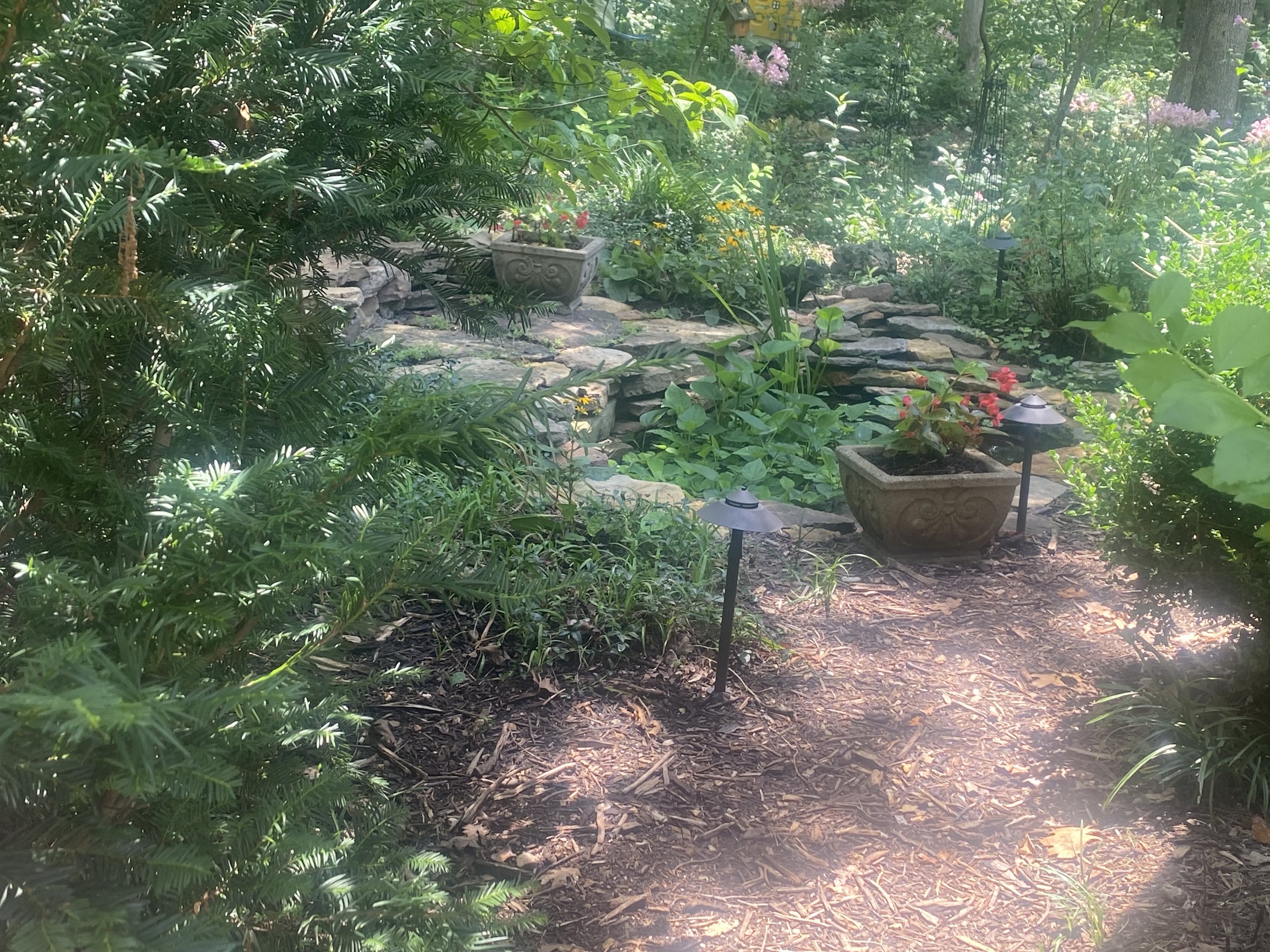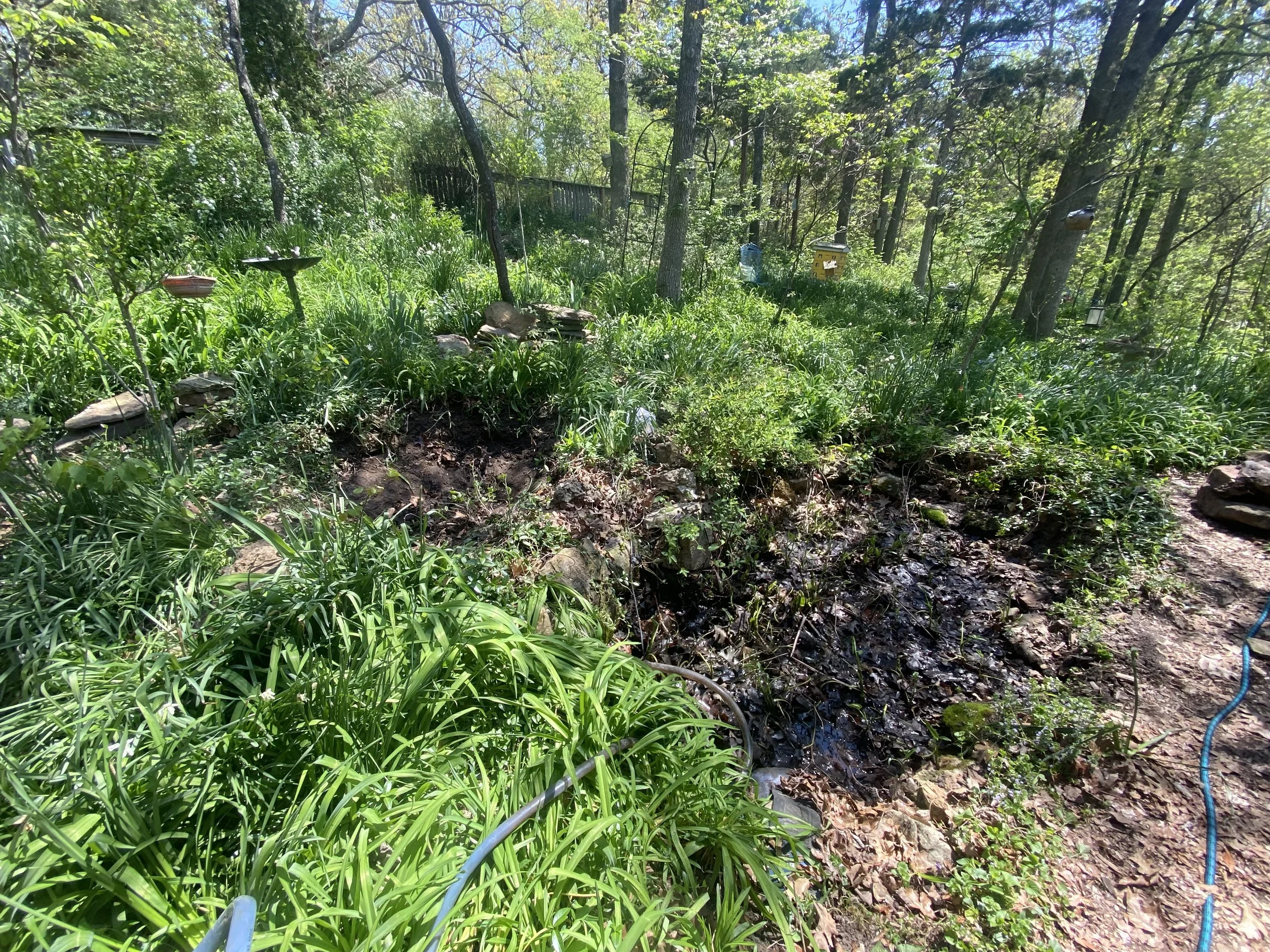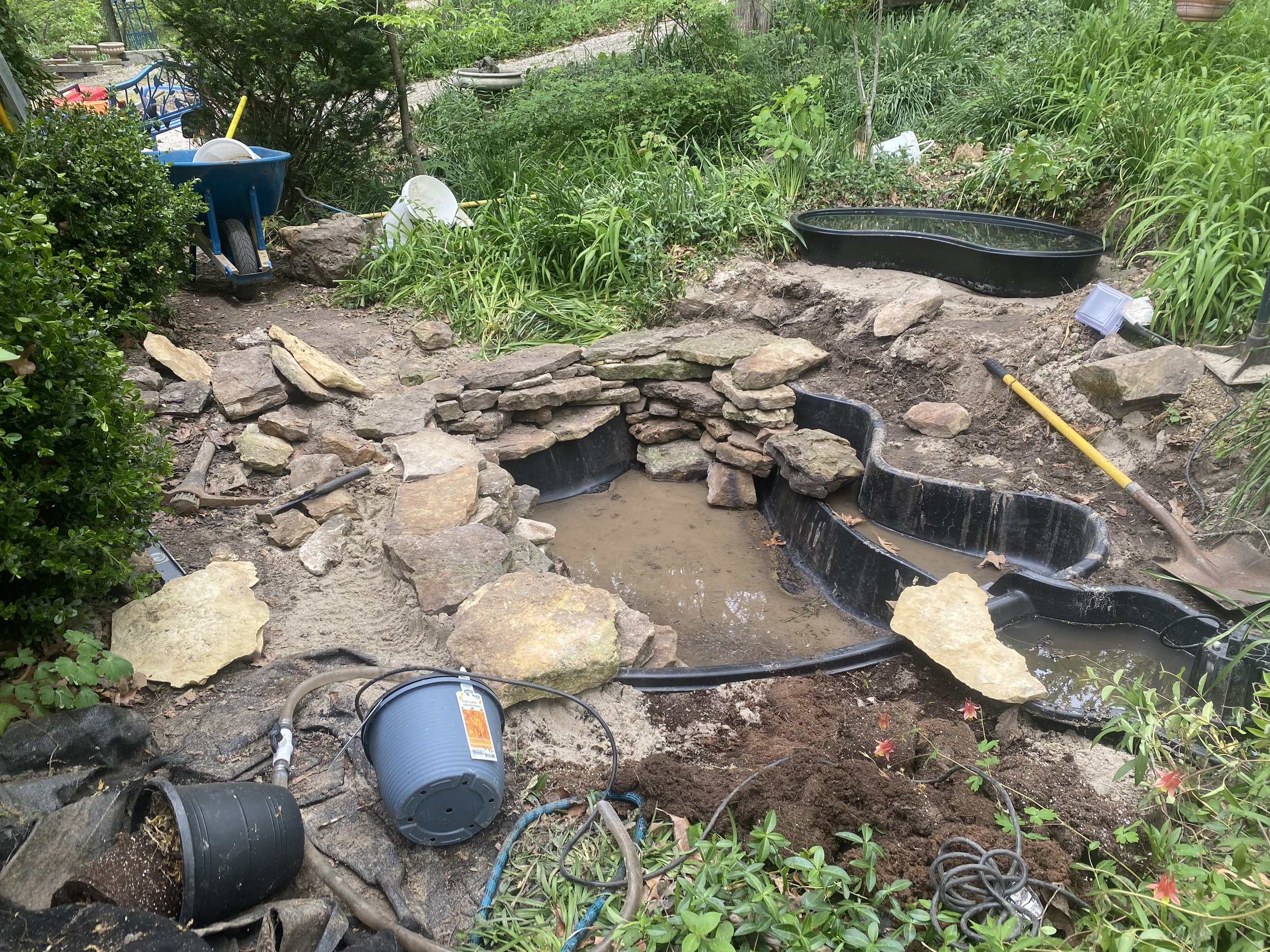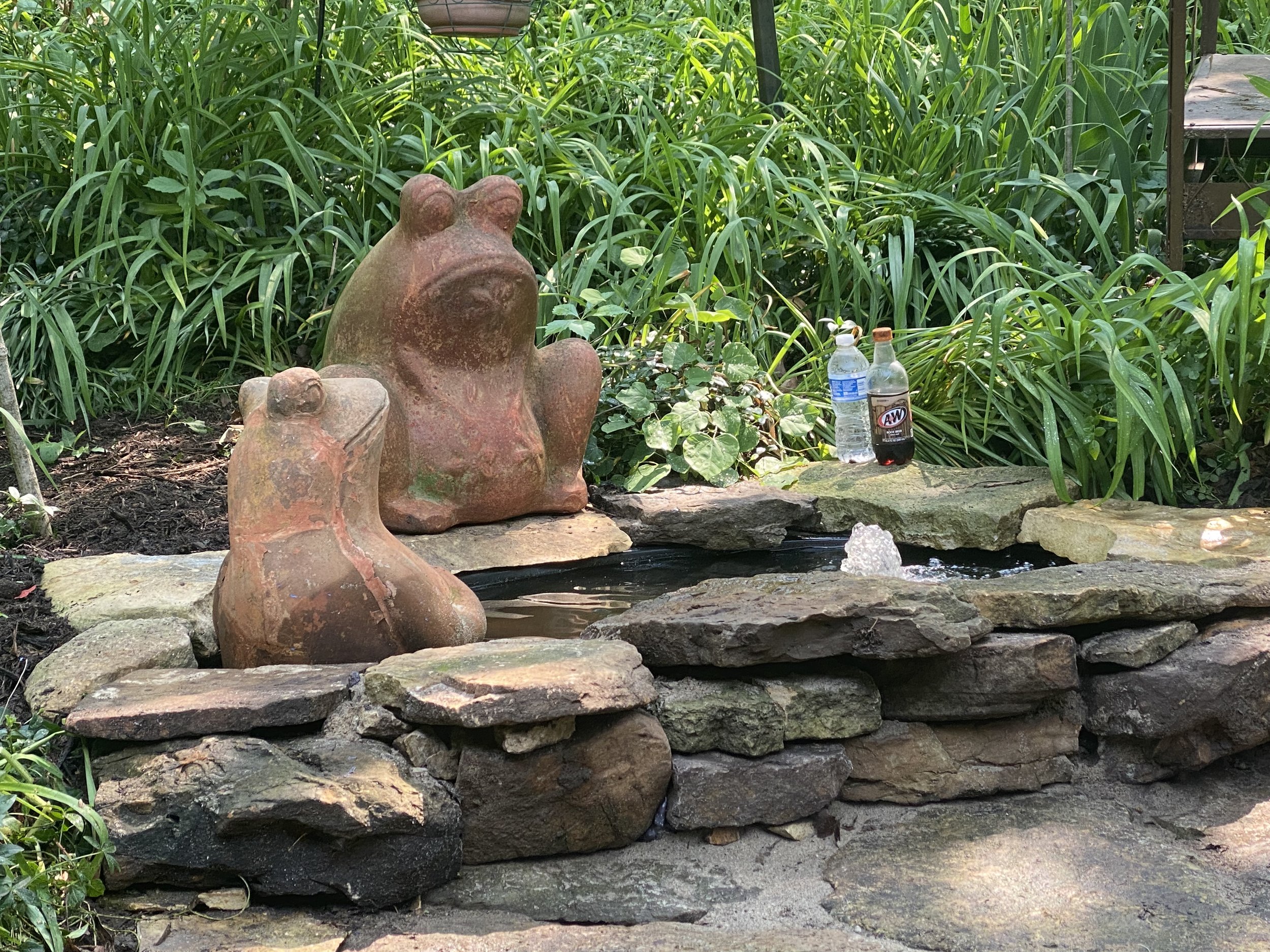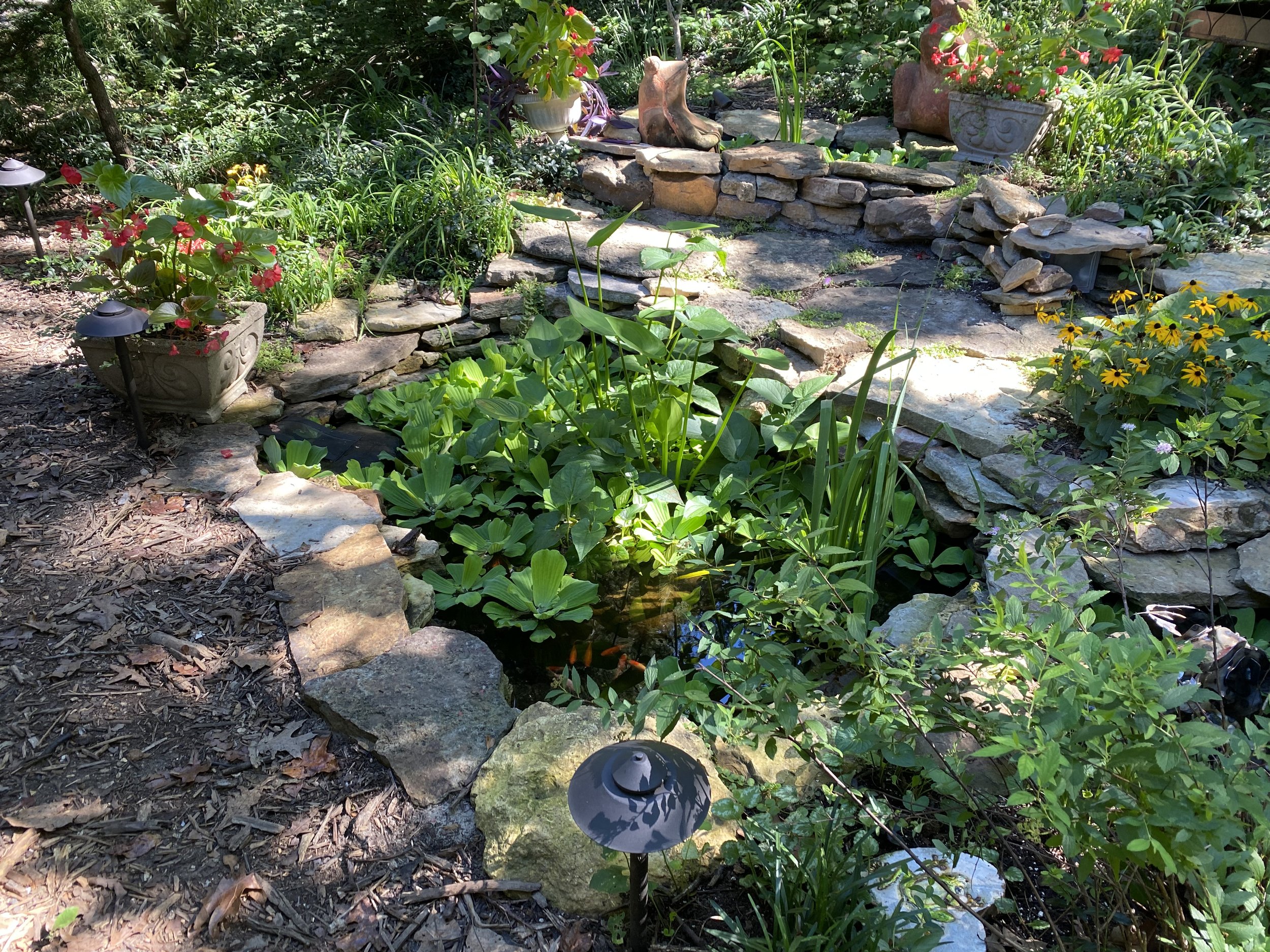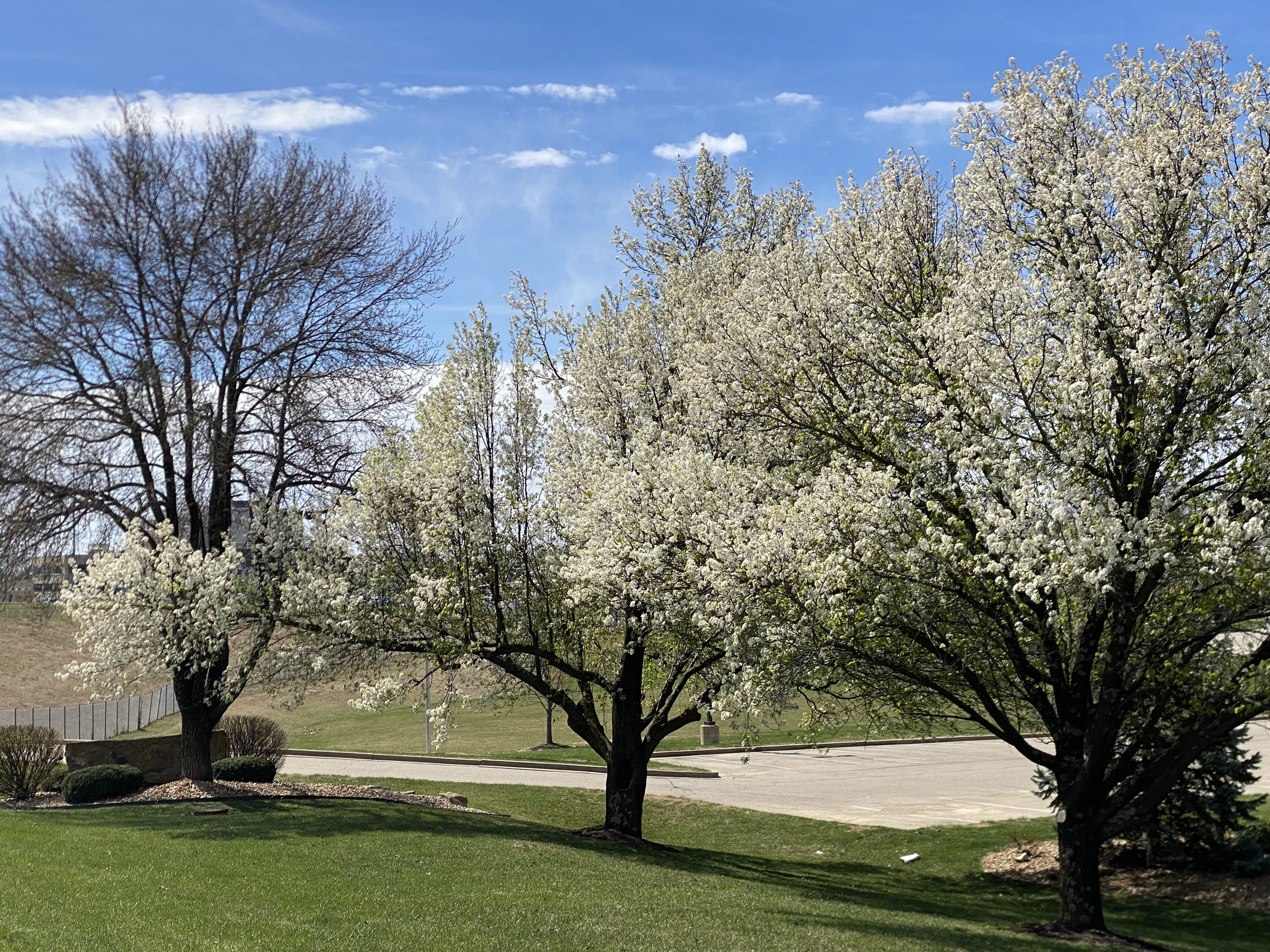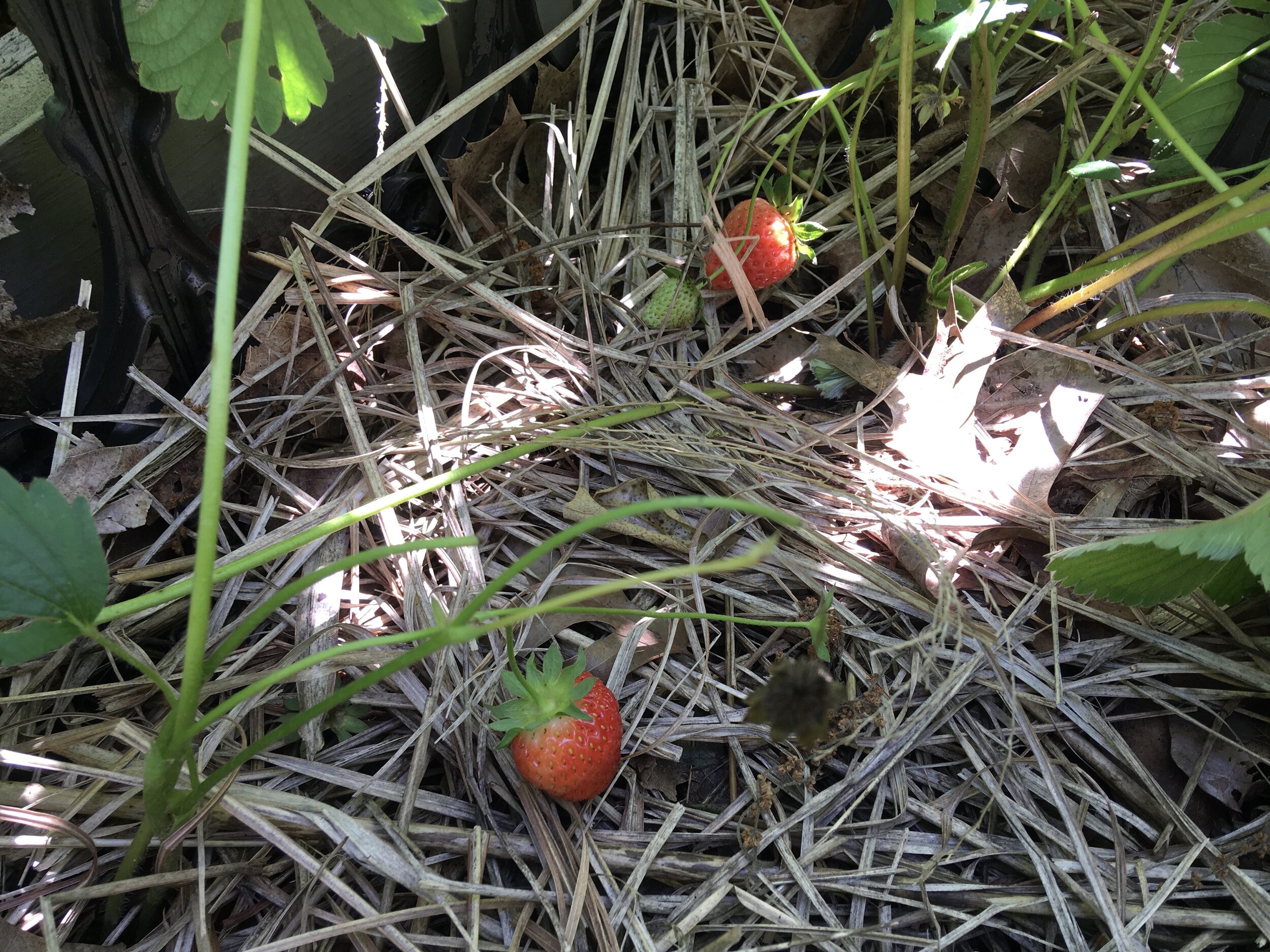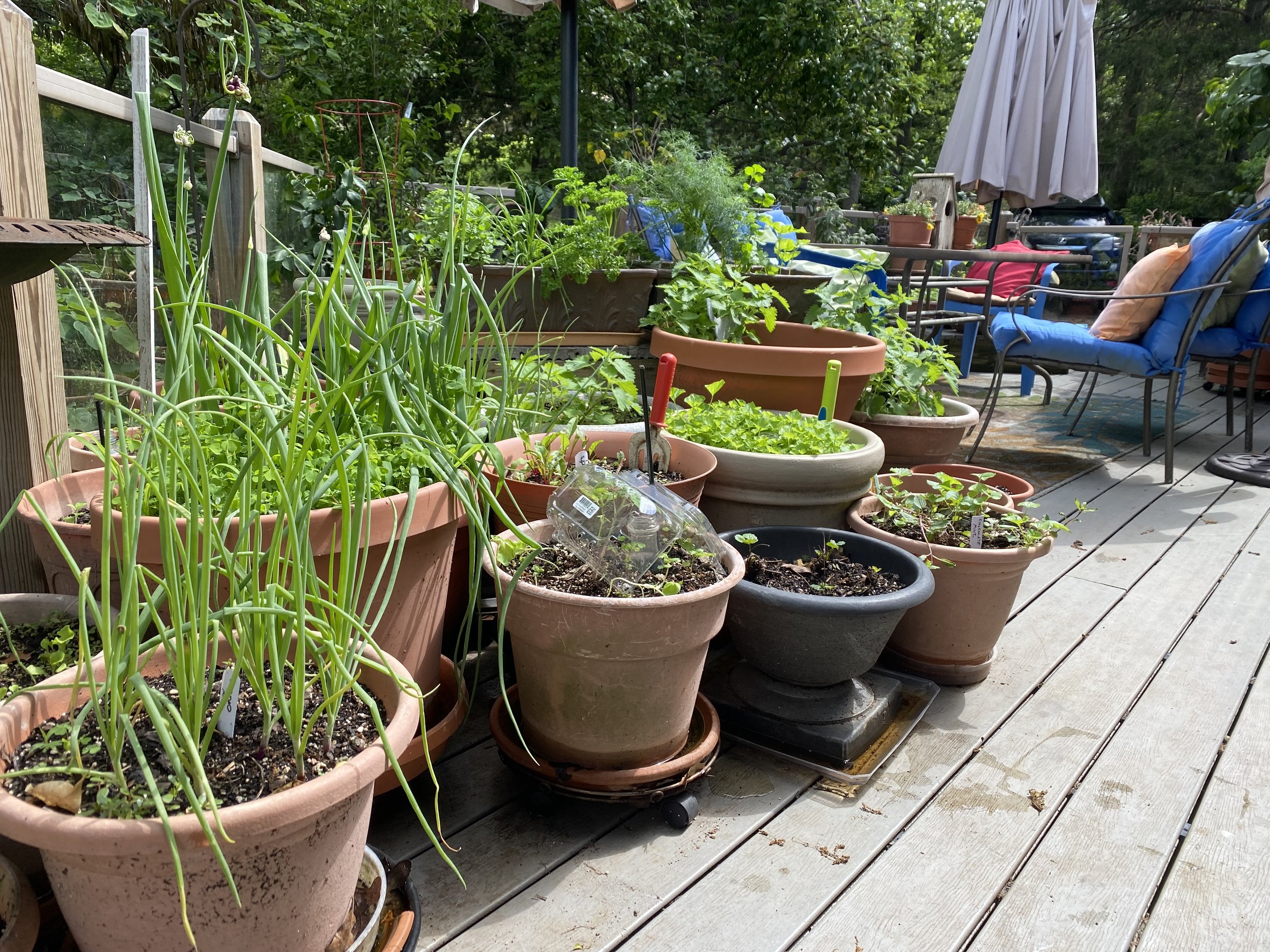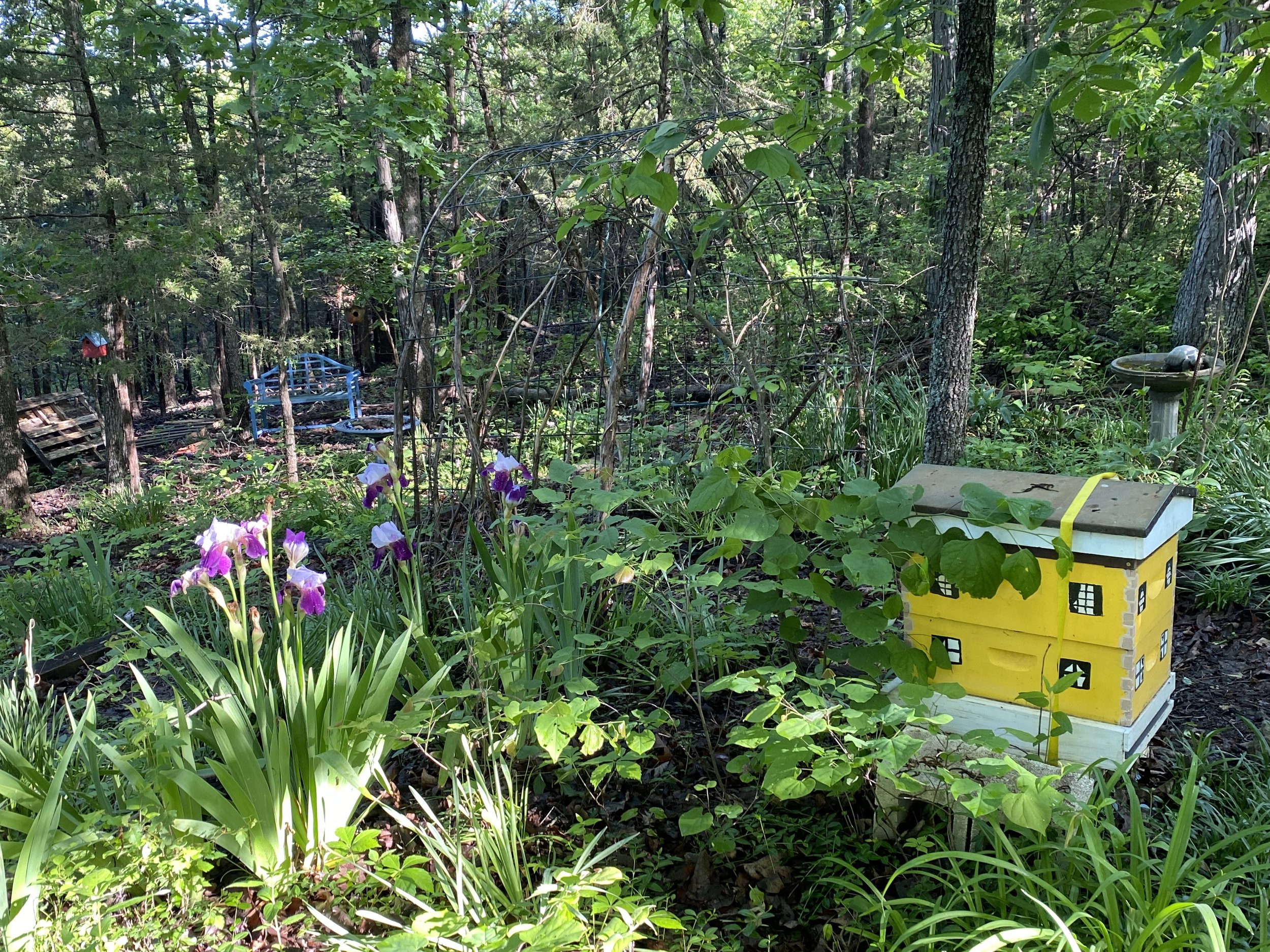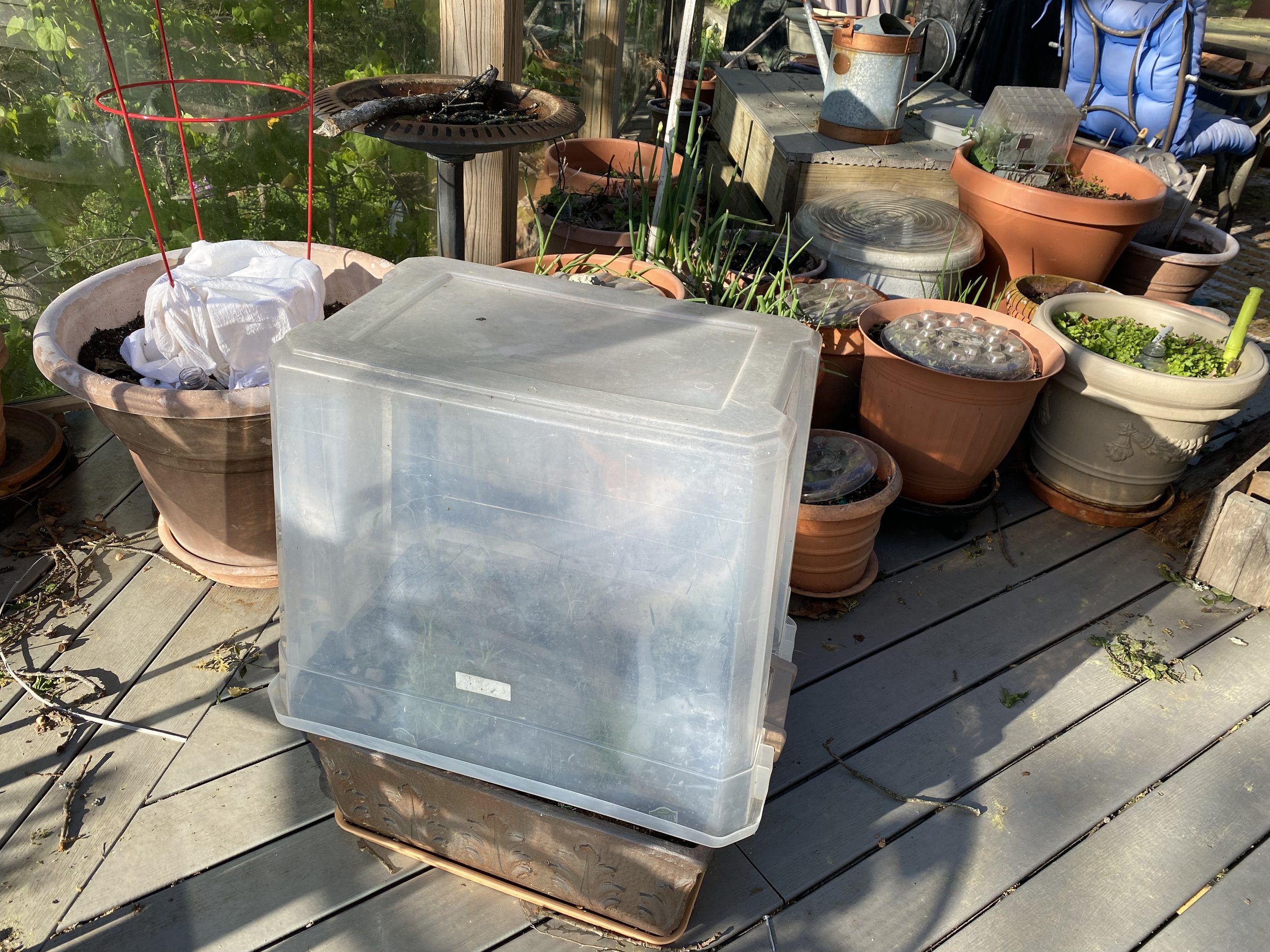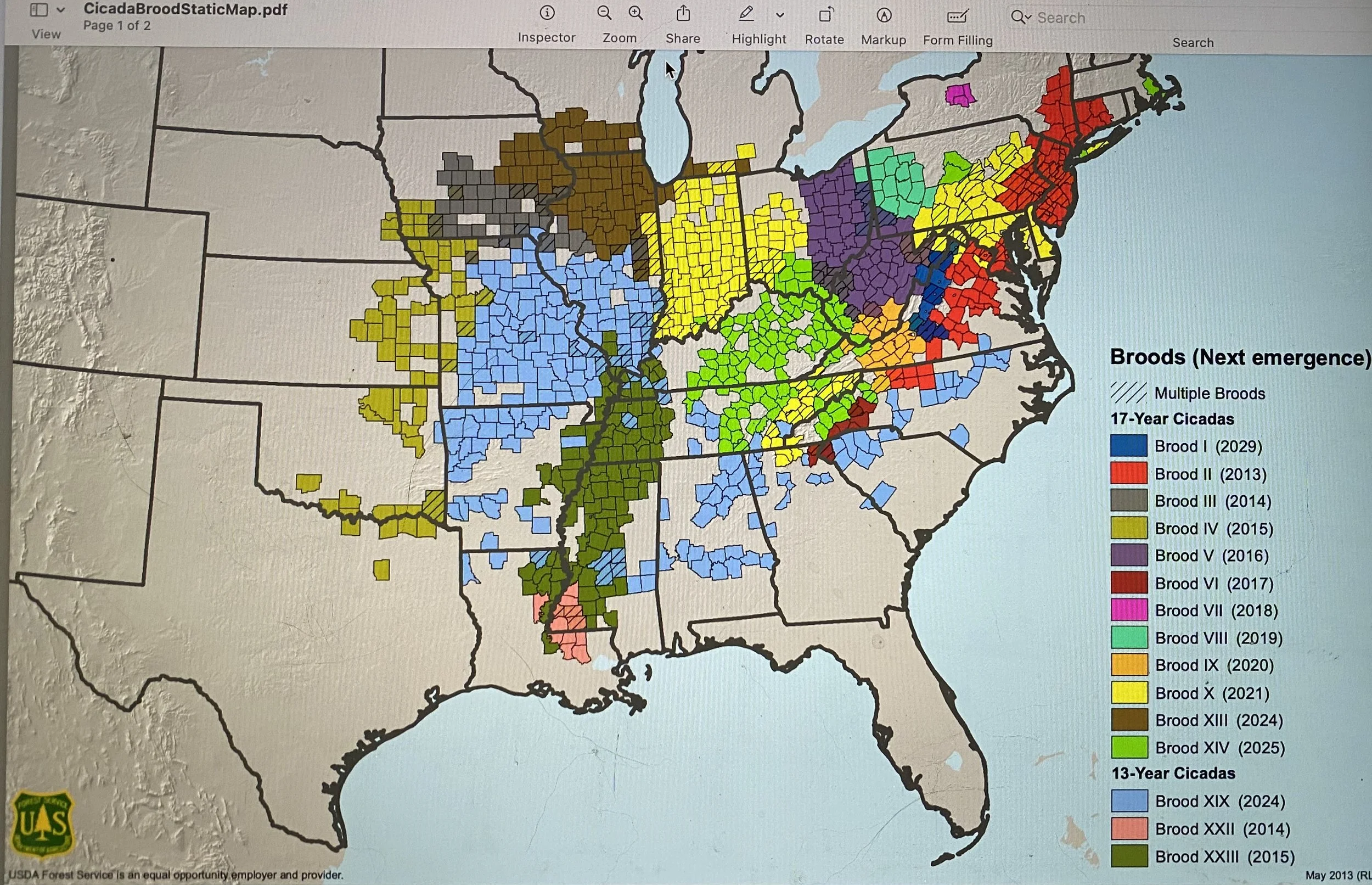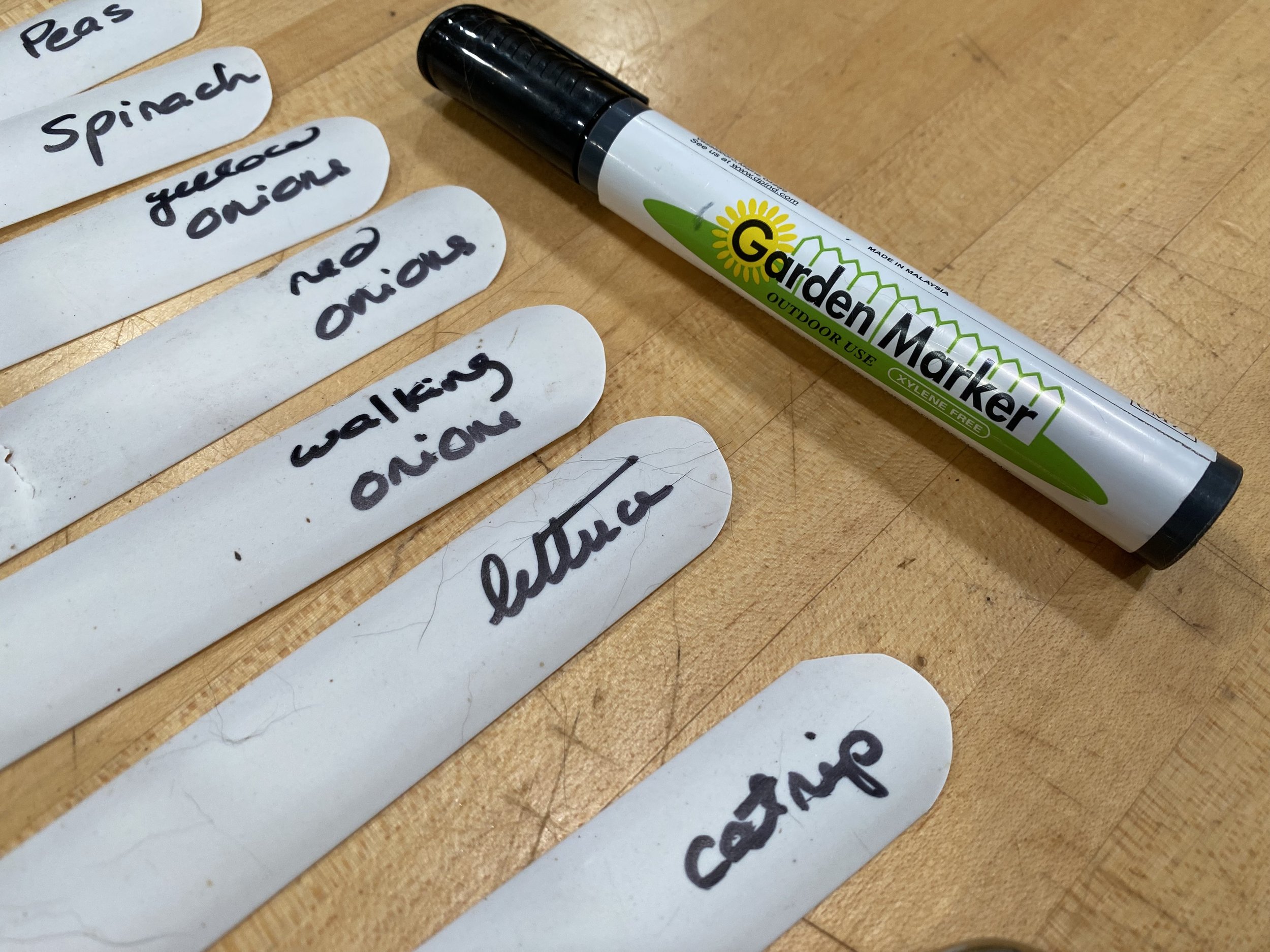Storm Water Ponds 2.0
/storm water runs downhill and collects in these ponds before hitting my house. (charlotte ekker wiggins photo)
Storm Water Ponds 2.0
Earlier this spring, I decided to remake my two storm water detention ponds at the front of my house.
These holes were made in 1995 when I removed my slolem-of a garage entrance concrete. Realizing storm water will run downhill into my garage, I set up storm water ponds to reduce the water runoff and capture rain.
The first ponds were made with black plastic. Although they lasted for a number of years, I had to replace them when something punctured them.
the old storm water ponds had a liner that had to be replaced. (charlotte ekker wiggins photo)
Here’s a better view of the same space cleared of some of the overgrowth and ready to install pond forms.
pre-formed plastic liners will last longer and still collect rain water. (charlotte ekker wiggins photo)
Pond forms are easy to work with as long as you level them and add support underneath. It also helps if you don’t get rain filing up the forms before you’re done. The resident frog population is well-established and didn’t go far during the construction.
rocks line the pond form side so water levels can fluctuate without showing the pond form. (charlotte ekker wiggins photo)
I didn’t buy anything new for this project besides the pond forms, sand, glue to hold in critical rocks and solar-powered metal lights. I had the rocks and pumps. Each of the three ponds have a pump to keep the water oxygenated.
Push the flat rocks farther over the pond form lip so they aren’t as visible. (charlotte Ekker wiggins photo)
In terms of cost estimate, the pond forms, sand, sealer and lights were around $1,000. If you have to buy rocks and pay labor that will depend on your local pricing.
I’ve made the previous storm water ponds and had my handyman and his crew develop this one. I’m glad I did because he knows me and added safe walking spaces in between the ponds I now use every day.
I’m still mulling over additional landscaping. I need some clear spaces to safely get around. Some plants were growing in those areas before this work was done so I’m waiting to see if they will return on their own.
In terms of mosquitos, the water is getting churned by pumps and resident goldfish. I also have a resident population of dragonflies that take out mosquitos and water plants that help keep the collected rain water clear.
Didn’t take my bees long to find the water source. They like to hang out on several moss-covered stones. I also added water lettuce so they have safe places to land as they gather water.
I could use the larger pond for water therapy but may have to explain that to resident frogs. (charlotte ekker wiggins photo)
This is the first spot I visit in the morning to feed the resident goldfish and count frogs as they dive in. It’s a small water feature that was designed to be practical but has added a lot of joy to my garden. If you have a chance to add one, I highly recommend it!
For more gardening, beekeeping, cooking and easy home decor tips, subscribe to Garden Notes.
Charlotte

